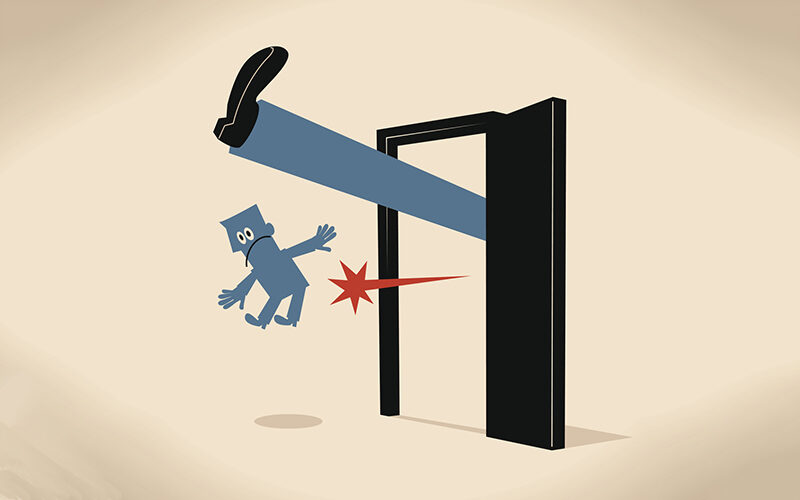
It’s hard to win an argument when you’re not allowed to speak.
This week, FAC filed written objections to a Solano County Superior Court judge’s stated plan to shut out the public and press from a hearing on a case of intense public interest. We expected we’d at least get the chance to explain that the judge’s plan would violate the First Amendment.
We were wrong.
Not only did the judge decline to read our written papers, which we submitted the night before and personally handed to his courtroom clerk before the hearing in question. He didn’t let us in the courtroom to make our case.
That by itself was a plain violation of the First Amendment and California law, which could not be more clear: when a judge considers closing a court proceeding, the public and press have a right to be heard — to make the case that the hearing must remain open.
But the judge took it one step further: With the courtroom door locked, he proceeded to hold a hearing on two motions. No public, no press.
This also violated the U.S. Constitution and California law. If the judge had entertained our arguments, he might have understood that and let the public in as the law required.
Even though our argument was rejected — and indeed wasn’t even heard — I am proud of our legal staff for scrambling on very short notice to put the argument together and get to court.
Indeed, I would do it all over again, even if I knew the result would be the same.
It’s so crucial that media organizations or others step in to try to protect the press and public’s right of access – rights fundamental to democracy. FAC routinely hears about public officials, including judges, who disregard important transparency laws. Sometimes it’s intentional, surely. But sometimes it’s genuine ignorance. If nobody makes the argument, that ignorance will only persist.
Another reason I’d do it all over again: Even losing arguments have an impact — particularly losing arguments that clearly should have won. Those can be effective vehicles for educating the public and members of the judiciary. See for example Open Vallejo’s Oct. 2 article about the improperly closed hearing. In it, any reader — perhaps including the judge — will learn that:
Civil court proceedings are presumptively open to the public, under both state law and the First Amendment. Before closing a proceeding, courts must hold a public hearing to establish that there is an “overriding interest” in doing so, that the closure is narrowly tailored to serve that interest, and that there is “no less restrictive means of achieving the overriding interest,” according to a 1999 decision by the California Supreme Court.
Which is a nice, concise summary of part of the argument FAC made in its moving papers.
One sad irony about the unlawful court closure on Oct. 2 is that the hearings in question were themselves about government transparency. Both hearings stemmed from a California Public Records Act lawsuit brought by the ACLU of Northern California against the Vallejo Police Department, alleging that the department failed to produce records relating to investigations into police abuses, as required under the CPRA.
The records related to a scandal brought to public light by Open Vallejo, which in 2020 broke the story that for years, members of the Vallejo Police Department had “commemorated fatal shootings with beers, backyard barbecues, and by bending the points of their badges each time they kill in the line of duty.” The story resulted in an investigation, the results of which Vallejo has refused to disclose.
The ACLU of Northern California sued Vallejo for denying a public records request related to the investigation and moved both to enforce the request and to clarify the scope of a protective order over certain materials produced in discovery.
The hearing on both motions was scheduled for Oct. 2. Open Vallejo planned to cover the hearing.
On the afternoon of Oct. 1, the judge issued his tentative ruling indicating he intended to close the entire hearing to the press and public and seal the transcript.
Representing Open Vallejo, FAC filed objections and we were in the courthouse the next day to argue that Open Vallejo journalists and the general public should be allowed to attend.
We lost, of course, without ever being heard. It is possible the issue could go to the Court of Appeal. But given the time and financial burdens of doing so, that may not be possible.
And so the constitutional violations of Oct. 2 may simply go unaddressed. This is not a good end — but unfortunately it is not unique. Improper court closures happen with some regularity. If nobody is there to object, it’s likely nobody other than the parties to the case will ever even know about it.
But FAC was there to object on Oct. 2 — and that is in itself of significant value. If nobody speaks out, there’s not even a chance that the rights of the public and press will prevail.
